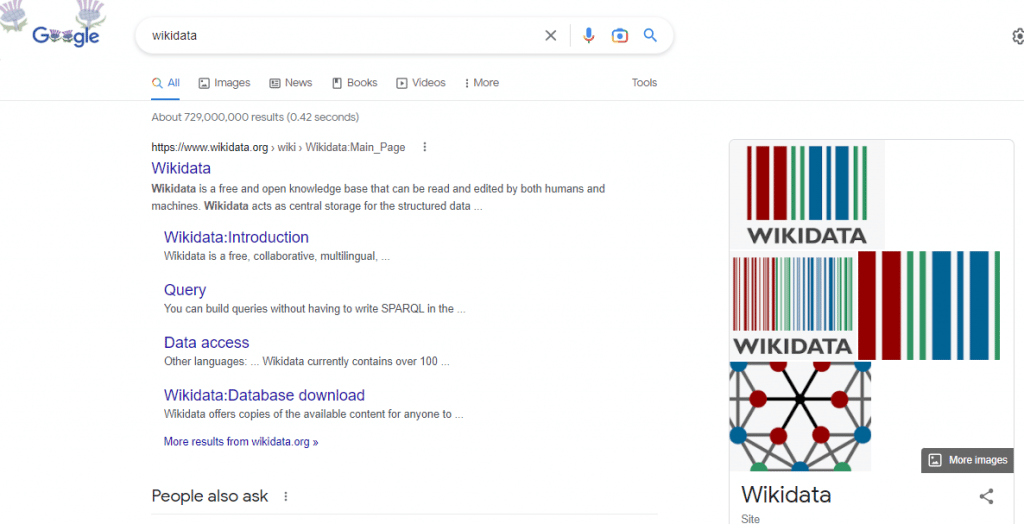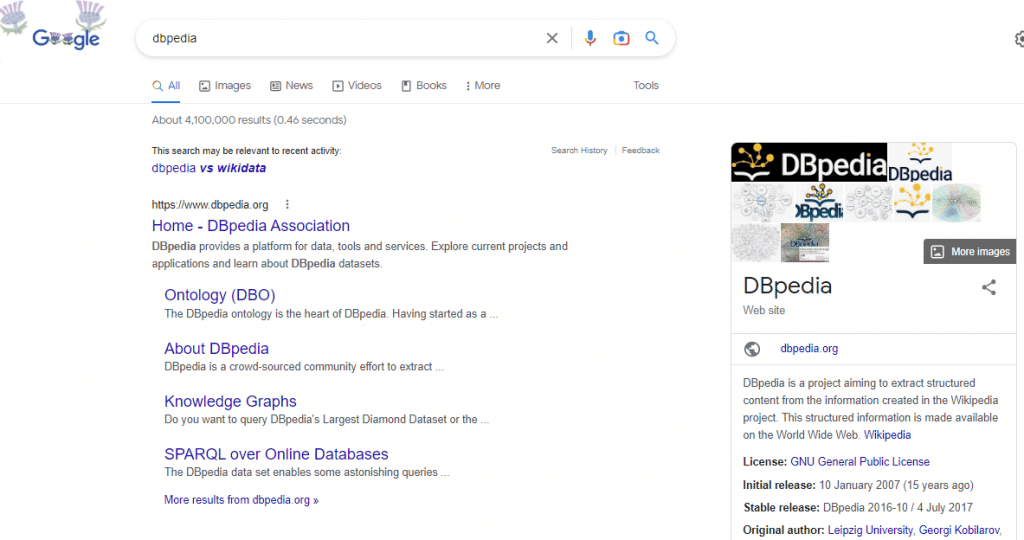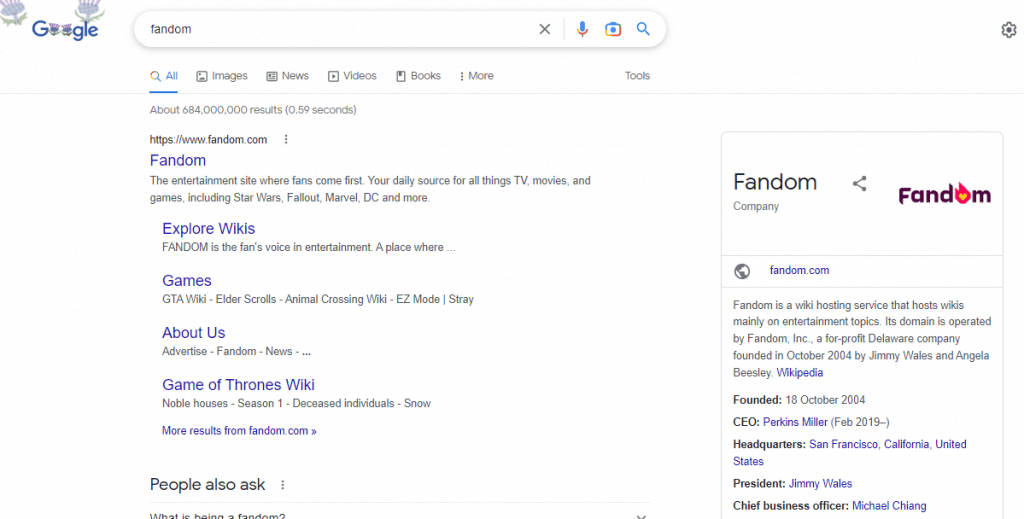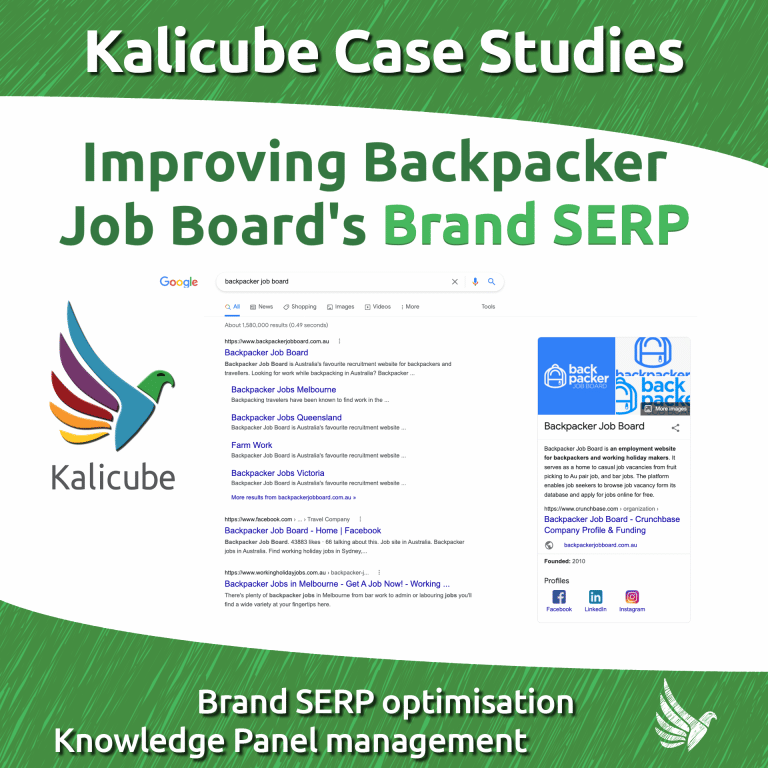Knowledge Panel Spam: What You Need To Know

What is Knowledge Panel Spam?
Knowledge Panel Spam is a practice whereby people trigger and manage Knowledge Panels using techniques that do not comply with Google’s guidelines.
The definition of Knowledge Spam (that triggers these Knowledge Panels) is content designed to trick the Knowledge Algorithms and that is not helpful to users or people.
So Knowledge Panel Spam can be defined as the process of creating information sources that are designed principally to trick the algorithms into creating or updating a Knowledge Panel for an Entity.
Examples of a Knowledge Panel Spam
A common example of Knowledge Panel Spam is when someone publishes a book with the aim of triggering a Knowledge Panel. The books (which are Knowledge Spam) generally fit into one of three types: plagiarised texts, content that is irrelevant to the declared topic of the book and books that are not intended for sale.
Another example is Pseudo-Wikis. Wikipedia, DBpedia, and Wikidata are well-maintained and policed wiki sources that Google considers reliable, and the Knowledge Algorithms have been trained to trust them. Some companies have created commercial Pseudo-Wiki that emulate these trusted wikis (and sometimes also use the content from their articles). A generalist wiki that asks for payment to create or update an article or has ads on the pages is likely to be something Google considers to be a spam source, and therefore tagged as a Pseudo-Wiki by Kalicube.



On the other hand, specialist wikis on sites like Fandom are less likely to be spam sources, but can be used for spam because one individual can unilaterally create an entire universe just for the algorithms. So Fandom is not spam per se, but it can be used for spam.

Specialist Wikis are not spam if they are curated by humans and policed well. A well-maintained specialist wiki that isn’t “pay-to-play” is likely to become a trusted source for Google’s Knowledge Algorithms for the niche it describes.
Is Knowledge Panel Spam Similar to Link Spam (Penguin)?
Yes, you can draw parallels between Knowledge Panel Spam and Link Spam and therefore start imagining that Google will release a “Penguin for Knowledge Panels”.
Link Spam is search ranking manipulation by people who create links between web pages that aim simply to trick the algorithms into favouring the target web page. People buy links or create links on inferior sites to fool the algorithm into thinking they are more popular than they actually are because Google has traditionally had a huge reliance on counting links to assess web page authority.
Google released Penguin to algorithmically combat that type of spam.
A similar thing is happening with Knowledge Panels. People are finding ways to create Knowledge Spam that tricks the Knowledge Algorithms into triggering a Knowledge Panel. People have created some online resources of dubious quality and authority that the Knowledge Algorithms currently trust that provide a shortcut for triggering a Knowledge Panel.
Why Doesn’t Google Just Blacklist These Sites That It Knows Are Spam?
Google is letting spam through, just like they did with link spam. The logic is that by allowing this spam short term, they can collect the data and use that to train the algorithms to understand what Knowledge Spam looks like. This allows Google to train the algorithms to recognise the spam people are using today, but also recognise (and exclude) future as-yet-unthought-of spam techniques and resources.
Making a comparison with Penguin: originally, Penguin consisted of multiple manual updates by Google engineers. These manual updates were steps in a process to build a self-learning anti-spam algorithm and integrate it into the core algorithm. That’s huge – the anti-spam Penguin algorithm is now part of the core algorithm and it can identify spam links and algorithmically exclude them. Importantly, it can identify spam link types it already knows (from those manual updates), but it is additionally semi-autonomously learning to identify and algorithmically exclude new techniques spammers are implementing today and in the future.
In short: Google engineers train the machine to understand what spam looks like instead of manually excluding it from the algorithm. So if they allow humans to create spam and trick the machine, they will find the spam based on the data feedback, and send the data back as corrective data. Gradually, the machine will learn “what spam looks like” and be able to dynamically exclude spam it has never seen before.
Google has perfected this sequence for letting spam through, collecting the data and building an ML algorithm to combat the spam. They did this with Penguin and Panda. They will now do it with Knowledge.
Two important things here: because the engineers have the experience of building Penguin and Panda, they will be able to develop this new anti-knowledge-spam algorithm faster, and also since Machine Learning technology is improving exponentially, the machine will learn faster than ever before. Don’t expect Knowledge Panel Spam to be the huge, long term problem that link spam represented.
Analogy: Teaching a Child
Machine Learning Spam Algorithms can be compared to teaching a child. If you encourage the child to go to the library and research and learn for themself, they will be learning to learn. If you tell that same child everything they need to know, they will never learn to learn. It will always come to you and ask for the answer. The engineers are teaching the algorithms to learn to learn.
How Does Knowledge Panel Spam Fit Into Brand SERP Optimization and Knowledge Panel Management?
In the context of Brand SERP Optimisation and Knowledge Panel management, Knowledge Panels are clearly an incredibly important part of Brand SERP Optimisation.
A Knowledge Panel on your Brand SERP is a must. However, if the Knowledge Panel is deleted because you spammed the system, rebuilding the Knowledge Panel will be harder because Google and its algorithms will associate you with fraud. Sidenote: a Knowledge Panel can be deleted by either the algorithm or a person at Google. Either way, expect a bigger task rebuilding than it was to build in the first place.
Google is a Knowledge-driven, entity based Search Engine and in that context, trust is the cornerstone. You need to convince Google to trust you, and the best way to do that is to build a solid Entity Home. The central foundation of Knowledge Panel Management is the Entity Home on your own website, on which you curate trust over time.
An Entity Home is for life. If you manage to trigger your Knowledge Panel by spamming, it will be very difficult to convince Google to trust your Entity Home in the future.
Whereas spammy shortcuts were often a good mid term solution for link-building, in a Knowledge-driven, entity based world, there are no real, meaningful advantages to be taken from cheating the system. At Kalicube, we have seen that the short term wins (timeline: a few months) are systematically dwarfed by the mid term (a year) and long term harm they inevitably cause.
The Kalicube Process™ is designed to build solid, reliable and information-rich Knowledge Panels for any Entity.
Approximate Timelines:
- Spam Knowledge Panel: 2 weeks to a month (but often deleted within a year, then back to significantly-worse-than-suqare-one)
- Spam-free Knowledge Panel takes about 3 months to trigger
- Spam-free “Knowledge Panel for life” takes about a year to become solid, reliable and information-rich.
Do you want to build your Knowledge Panel using The Kalicube Process™?

Download our free Knowledge Panel checklist, where Knowledge Panel expert Jason Barnard reveals how we trigger and manage Knowledge Panels for our clients.






